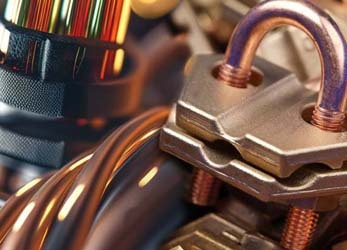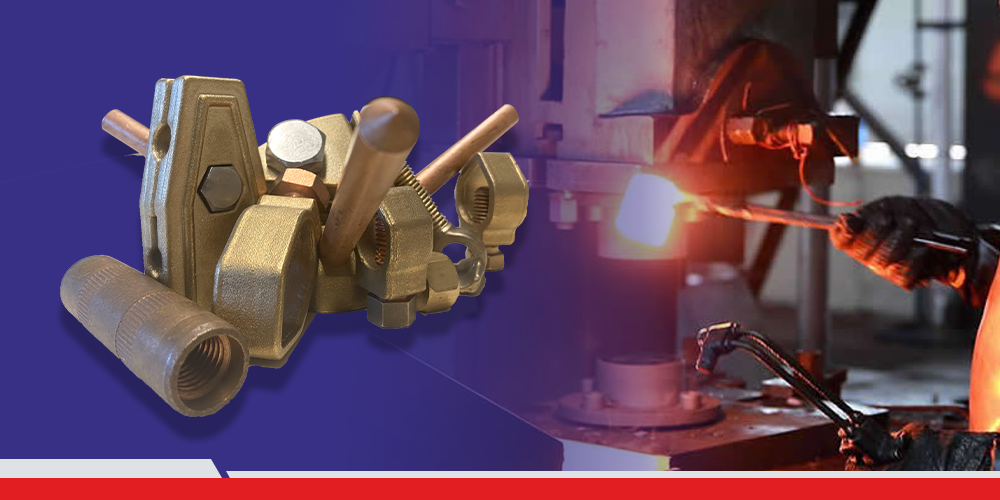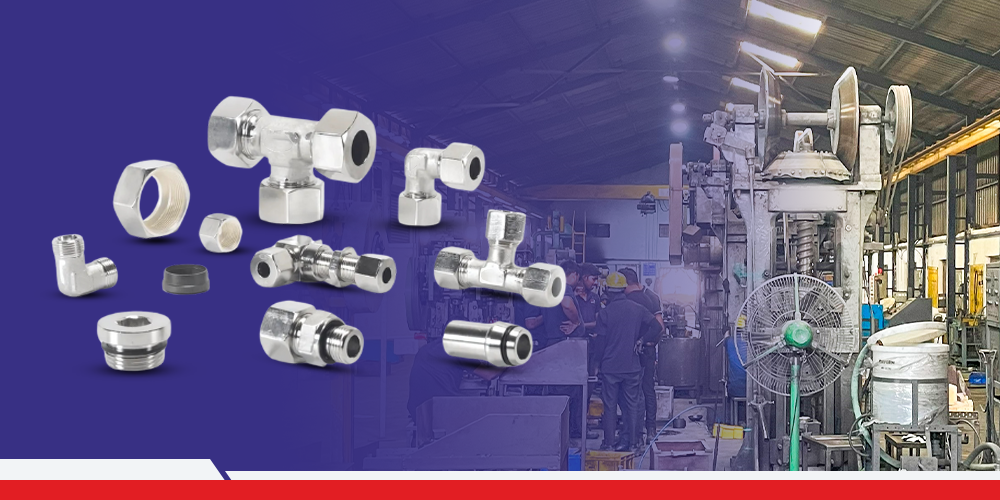Sales Inquiry
High-Performance Electrical Connectors: The Role of Non-Ferrous Components

Table of Contents
1. Introduction
2. The Material Selection Dilemma
2.1 The Versatility of Brass
2.3 Leveraging Aluminum's Strengths
2.3 The Conductivity of Copper
2.4 The Durability of Bronze
3. The Backbone: Conductivity in Connectors
3.1 Conductivity Explained
3.2 How IQS Can Help: Tailored Solutions
4. Ensuring Longevity: Material Selection and Durability
5. IQS Solutions: Your Preferred Aluminium Casting and Aluminium Forging Suppliers
6. Frequently Asked Questions (FAQs)
1. Introduction
Electrical connectors are the unsung heroes of the modern world, enabling the
seamless flow of power and data across various applications. From the electronics industry to automotive and aerospace sectors, high-performance electrical
connectors play a pivotal role in ensuring uninterrupted communication and power distribution. However, the efficiency of these connectors largely depends on the
materials used in their construction.
At IQS Engineering Solutions Pvt. Ltd, we understand the intricacies of material selection and the substantial impact it has on connector performance. Non-ferrous materials such as brass, aluminium, copper, and bronze have risen to prominence due to their unique properties that make them ideal for connector design.
2. The Material Selection Dilemma
2.1 The Versatility of Brass
Brass is an alloy of copper and zinc, offering a balanced combination of essential properties. It boasts excellent electrical conductivity, making it a preferred choice for connectors where efficient power transmission is crucial. In addition to its conductivity, brass is known for its corrosion resistance, which contributes to the longevity of connectors. This versatility makes brass a time-tested choice for a wide
range of electrical applications.
2.2 Leveraging Aluminum's Strengths
Aluminium connectors are highly sought after for their lightweight nature and
remarkable thermal conductivity. The reduced weight of aluminium connectors plays a crucial role in industries where weight reduction is a key consideration, such as aerospace. Despite its lightweight nature, aluminium retains substantial strength and durability, making it a formidable choice for various applications.
2.3 The Conductivity of Copper
Copper is renowned for its unparalleled electrical conductivity, earning it the moniker of the "conductivity king." It is an ideal choice for applications where electrical efficiency is paramount, as it ensures minimal power loss during
transmission. The conductivity of copper ensures that connectors using this material can transmit electrical signals with utmost efficiency.
2.4 The Durability of Bronze
Bronze, a copper alloy enriched with elements like tin, is prized for its exceptional durability. It excels in applications exposed to harsh conditions, such as extreme
temperatures and corrosive environments. Bronze connectors are celebrated for their resistance to wear and corrosion, ensuring their long-term functionality.
3. The Backbone: Conductivity in Connectors
3.1 Conductivity Explained
Conductivity is a fundamental property in the world of electrical connectors. It measures a material's ability to carry electrical current efficiently. Conductivity is typically expressed in units of electrical conductance, and materials with higher conductivity values are preferred for connectors. High conductivity ensures that
connectors can transmit electrical signals with minimal resistance, contributing to their efficiency.
3.2 How IQS Can Help: Tailored Solutions
At IQS Engineering Solutions Pvt. Ltd, our commitment goes beyond supplying materials. We offer tailored solutions that precisely meet your needs. We understand that the selection of non-ferrous materials can be complex, and our expertise is at
your service. Here's how we can assist you:
Material Selection Guidance: Our experienced team can guide you in choosing the most suitable material for your specific application. Whether you require high conductivity like copper or lightweight strength like aluminium, we'll help you make the right choice.
Customization: We recognize that one size doesn't fit all. We provide customised solutions that align with your project's unique requirements. Our state-of-the-art
facilities and advanced technology allow us to create connectors that meet your exact specifications.
Quality Assurance: At IQS Engineering, quality is paramount. We adhere to strict quality control measures to ensure that the materials and components we provide meet the highest industry standards. Your connectors are in good hands with us.
4. Ensuring Longevity: Material Selection and Durability
The durability of connectors is of utmost importance, as they often operate in challenging conditions. Factors such as mechanical stress, vibrations, temperature fluctuations, and exposure to corrosive environments can affect a connector's lifespan. The choice of material significantly influences the durability of connectors. While bronze excels in harsh conditions, aluminium strikes a balance between durability and weight reduction, making it an excellent choice for a wide range of applications.
IQS Solutions: Your Preferred Aluminium Casting and Aluminium Forging Suppliers
At IQS Engineering Solutions Pvt. Ltd, we don't just supply materials; we provide solutions that empower your projects. As your preferred Aluminium Casting
Suppliers and Aluminium Forging Suppliers, we are well-equipped with the expertise and resources to meet your connector needs. Whether your project falls within the aerospace, automotive, or any other sector, our state-of-the-art facilities and unwavering commitment to quality make us the preferred choice for
high-performance electrical connectors.
5. Frequently Asked Questions (FAQs)
Q1: What factors should I consider when selecting non-ferrous materials for connectors?
A1: When selecting materials for connectors, consider factors like electrical conductivity, durability, weight, cost, and the environmental conditions the connectors will face.
Q2: Is there a one-size-fits-all material for connectors?
A2: No, the choice of material depends on the specific application. Copper is ideal for high-conductivity needs, while aluminium offers a balance between durability and weight reduction, making it suitable for a wide range of applications.
Q3: Why choose IQS Engineering Solutions Pvt. Ltd?
A3: We have a track record of delivering high-quality non-ferrous components, including aluminium casting and forging. Our commitment to customization ensures that your connectors meet your precise specifications, and our dedication to quality assurance guarantees their performance.
Q4: Are non-ferrous connectors more expensive than ferrous ones?
A4: While non-ferrous materials may have a higher initial cost, their unique advantages, such as high conductivity and corrosion resistance, make them a
cost-effective choice for many applications. The long-term benefits often outweigh the initial investment.
In conclusion, the selection of non-ferrous materials for high-performance electrical connectors is a critical decision that significantly impacts efficiency, durability, and cost-effectiveness. IQS Engineering Solutions Pvt. Ltd, with our expertise and commitment to tailored solutions, is your reliable partner in elevating the
performance of your electrical connectors. Connect






.png)